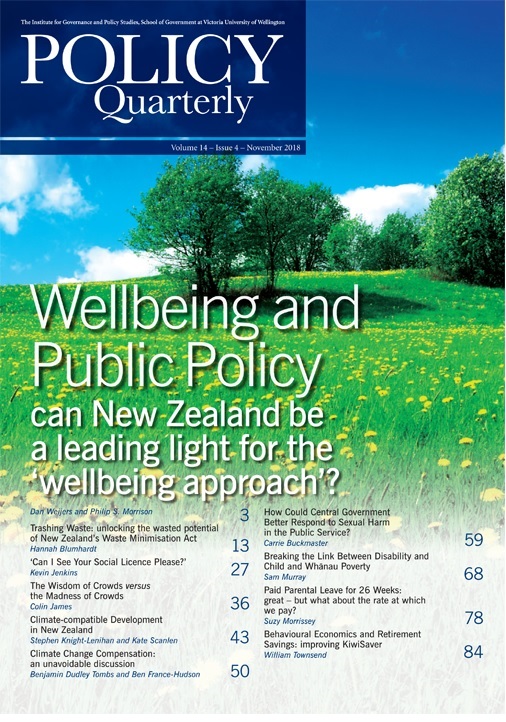Breaking the link between disability and child and whanau poverty
DOI:
https://doi.org/10.26686/pq.v14i4.5151Keywords:
child poverty, disabled children, children with disabilities, one-parent households, unemployment, United Kingdom, Ongoing Resourcing SchemeAbstract
In New Zealand, disabled children are more likely to live in a oneparent household than are non-disabled children. The primary carers of disabled children have a higher unemployment rate than oneparent households in general. As a result, households with disabled children are significantly more likely to experience income poverty. This is not the case in the United Kingdom, where households with disabled children tend not to be at greater risk of income poverty. A key factor in preventing a greater risk of income poverty is the higher disability-related allowances in the United Kingdom: the median payment rate is almost three times higher than the New Zealand equivalents. There is a clear case for increasing the payment rate of the New Zealand disability-related allowances. There is also a clear case for an overhaul of support for households with disabled children to better enable carers/parents to work and to provide more equitable and effective support.
Downloads
Downloads
Published
Issue
Section
License
Permission: In the interest of promoting debate and wider dissemination, the IGPS encourages use of all or part of the articles appearing in PQ, where there is no element of commercial gain. Appropriate acknowledgement of both author and source should be made in all cases. Please direct requests for permission to reprint articles from this publication to Policy-Quarterly@vuw.ac.nz.



